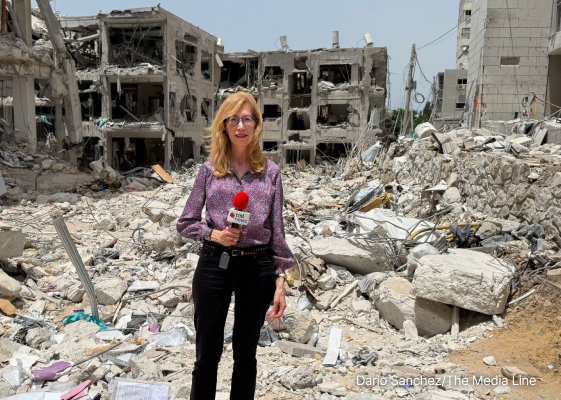Sources in Jordan and Egypt and Syrian opposition figures say killing of Quds Force commander will provoke escalation by Hizbullah and hamper building of nonsectarian force to counter Tehran in Iraq.
[Amman/Cairo] Friday’s US airstrike on Quds Force leader Maj. Gen. Qasem Soleimani, of Iran’s Islamic Revolutionary Guard Corps (IRGC) and Abu Mahdi al-Muhandis, the pro-Iran leader of Iraq’s Kata’ib Hizbullah, has failed to draw condemnation from Egypt, Jordan, or even Turkey.
Still, security sources in the two Arab capitals who maintain relations with Israel – as well as Syrian opposition figures in Istanbul – are concerned.
They anticipate that the assassinations will provoke an escalation by the Lebanese Shi’ite militia Hizbullah and slow efforts to nurture a nonsectarian force in Iraq capable of containing continued attacks planned by Tehran against the US and its Arab partners.
In Amman, security sources believe that the American presence in Jordan could be a potential target for Iranian retribution even as Muwaffaq Salti Air Base in the country’s northwest served as a refueling stop for some 20 C-17A Globemasters deployed to Iraq over the weekend.
The heightened presence of the Jordanian gendarmes is visible near the US Embassy in the southwest Amman neighborhood of Abdoun even as the Americans evacuated Baghdad diplomatic staff to Jordan after last week’s siege.
Ahmed Hafez, the spokesman for Egypt’s Foreign Ministry, said Cairo “is following with great concern the rapid developments in Iraq, which portend an escalation that needs to be avoided; Egypt calls for containing the situation and preventing any further escalation.”
Hafez added that “containment of the situation [in Iraq] entails an immediate cessation of all types of regional interventions in the affairs of Arab states and its peoples, which only served to stoke divisions and tension among Arab citizens who eagerly aspire for peace and stability.”
Meanwhile, the Egyptian military establishment, which long ago determined that the US is engaged in a long term pullback from the Middle East, minimized the strategic impact of the targeted killing of Soleimani and al-Muhandis.
Give the gift of hope
We practice what we preach:
accurate, fearless journalism. But we can't do it alone.
- On the ground in Gaza, Syria, Israel, Egypt, Pakistan, and more
- Our program trained more than 100 journalists
- Calling out fake news and reporting real facts
- On the ground in Gaza
- Covering Israel, Syria, Lebanon
- More than 100 students
- Exposing fake news
Join us. Support The Media Line. Save democracy.


Nagy Shohod, a lecturer at Cairo’s Nasser Military Academy and former military intelligence general, is dismissive of the long-term implications for the regional security outlook and Iranian ambitions.
“The death of any one person will not affect the country’s scheme to expand and revive the Persian Empire,” Shohod told The Media Line.
Sunni Arab states would like to see a stabilized Iraq and Iran out of Syria but the extent of Tehran’s footprint from Baghdad to Beirut limits their ability to consolidate a unifying security system.
“Now the head of the snake – Bashar al-Assad – is loyal to Iran and the rest of the [Sunni Arab] people are defeated because the Americans haphazardly imagined a ‘new Middle East,’” said Shohod, a veteran of the 1973 October War and the 1991 Gulf War.
After the Second Gulf War and de-Ba’athification, America’s limited footprint in Iraq allowed for Iranian expansion, said a former Iraqi general who spoke to The Media Line on background in Amman.
“The American efforts did not reach the missing substance in restoring the prestige of the Iraqi army, its pride in itself and its national leaders,” he said. “It is as if the US intention was to prepare an army in name only, and not in its capabilities, like forming a Border Guard force to protect a forest.”
Last January, US Secretary of State Mike Pompeo estimated the US deployment in Iraq at a troop level of 5,000.
“It is clear that the Iranians were surprised by the strike because they seemed to be counting on American diplomacy. Tehran relied on clumsy provocations, letting President Trump shock them by proving he could play their game,” said the former Iraqi officer.
The Iranians can call on a reservoir of armed forces in the Shia crescent plus Palestinian Islamic Jihad – already incensed by the Israeli military’s November assassination of their commander Baha Abu Al-Ata. But there’s a consensus that Tehran could incur unsustainable risk if they did more than kidnap or kill American allies in Iraq.
Informed observers do expect the impact of the strike on Soleimani to cause significant aftershocks in Syria and Lebanon.
In Syria, Soleimani is remembered for the recruitment of foreign fighters and overseeing the massacres from the suburbs of Damascus and Homs.
“The famous image of him is in Aleppo overseeing operations of besieging the city,” said Ammar Kahf, executive director of the Omran Center for Strategic Studies in Istanbul. “He also flew to Moscow to ask for the Russians’ involvement [in Syria] in 2015.
At the peak of the Syrian conflict, the IRGC commanded over 10,000 Iraqi Shia militiamen in addition to its own deployment of at least 1,500 Iranian fighters.
“In terms of a direct impact on the Syrian government’s military, I believe this may be a turning point in terms of Assad trying to distance himself from any conflicts with Iran,” Kahf told The Media Line. “And the Russians are also interested in not making Syria the scene for any American engagement with Iran.”
Lebanon, however, presents almost the opposite scenario.
“Hassan Nasrallah is a member of the higher planning commission of the IRGC, so he’s not at any distance from that organization,” Kahf added. “I think now the spotlight will be more on Hassan Nasrallah and Hizbullah. How that will impact the current crisis in Lebanon has yet to be seen.”